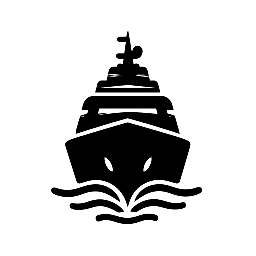If you’re planning to start a career as a deckhand or stewardess, there are a few mandatory certificates you’ll need before you even step on board. These courses prove you’re trained for safety, service, and basic life at sea — and they’re often non-negotiable for your first job.
Here are the five core certificates every yacht crew member should have — plus where to get them.
1. STCW Basic Safety Training
This is the first and most essential certificate. STCW stands for “Standards of Training, Certification and Watchkeeping.” It’s a 5-day course covering:
- Firefighting
- Sea survival
- First aid
- Personal safety & social responsibility
2. ENG1 Seafarer Medical Certificate
The ENG1 is a basic medical exam that confirms you’re fit to work at sea. It usually takes 20–30 minutes and must be done by an MCA-approved doctor.
- Valid for 2 years
- Required before any commercial yacht job
- You’ll receive a paper certificate on the spot
Booking early is smart, especially in high season. You can find approved ENG1 doctors through this UK government list.
3. Powerboat Level 2 (for Deckhands)
This certificate allows you to legally drive tenders under 10 meters. While not mandatory for all entry-level jobs, many yachts prefer crew who have it.
- 1–2 day course
- No previous experience needed
- Widely recognized worldwide RYA
Deckhands especially benefit from this early on, and it may set you ahead of others when applying.
4. Food Hygiene Level 2 (for Stewardesses)
If you’re working in guest service or handling food and drinks, this certification is highly recommended — and often required by yachts.
- Online or 1-day classroom course
- Required for galley stews, service stews, and junior stews
- Teaches proper hygiene, storage, and food handling
5. Security Awareness (ISPS)
This short module is often bundled with STCW. It covers basic maritime security — how to spot threats and keep guests safe. Some yachts don’t require it, but many commercial and charter yachts do.
Where to Book Courses
Popular course providers include:
- Bluewater Yachting
- Professional Yachting Association (PYA)
- YachtieCareers – For all inclusive packages with STCW, CV Writing and job support.
Bonus Tip: Always Keep Digital Copies
Scan your certificates and store them in a Google Drive or Dropbox folder. Many agencies and yachts will ask for them during the interview or hiring process.
Final Thoughts
Your certificates are more than a checklist — they’re your proof of professionalism and readiness. With these five in hand, you’re qualified to start applying for yacht jobs confidently and legally.

Leave a Reply